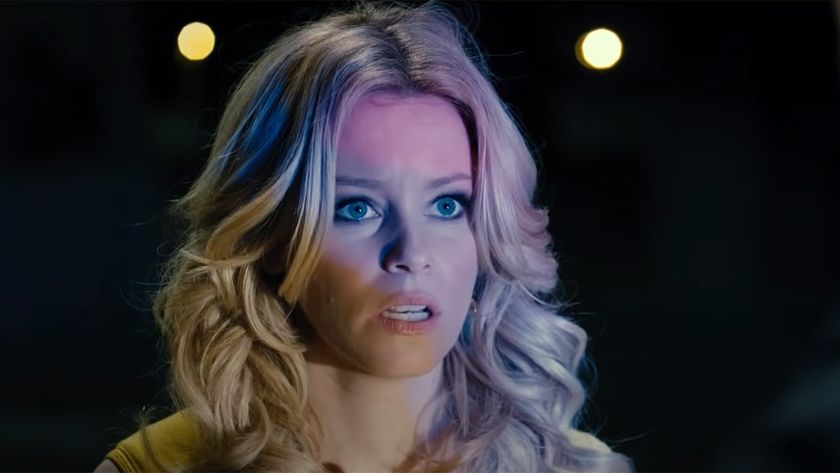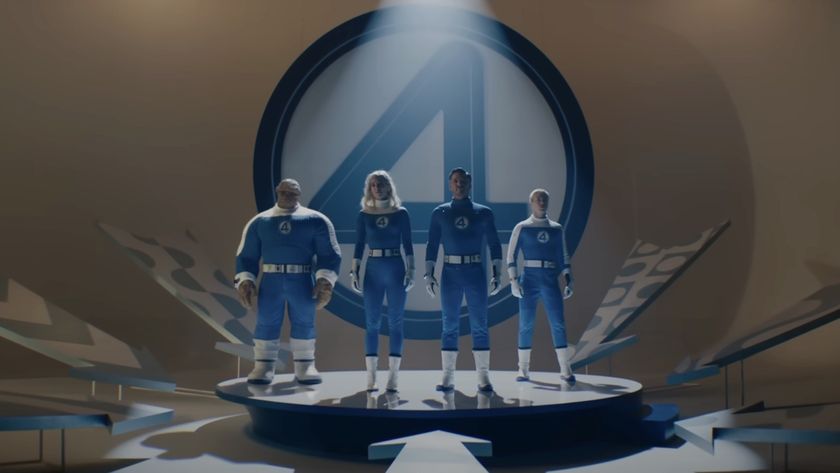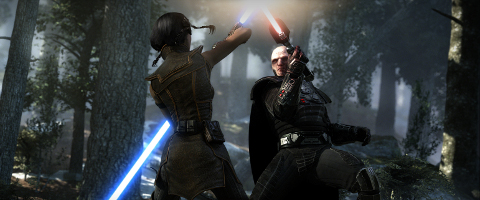
From the start, BioWare billed Star Wars: The Old Republic as an MMORPG with a story. It seemed like an odd claim - after all, every MMO provides you with at least a cursory justification for killing ten boars (the village needs food for the long winter!) or collecting five crystals (the archmage needs them for an experiment!). Old Republic doesn't just pay lip service to story, though. Over the course of 50 levels and dozens of hours, I experienced a tale as good as any BioWare offered up in any of the Knights of the Old Republic games.
There are filler quests, don't get me wrong. You'll kill x number of pirates and rescue y number of troopers on numerous occasions. Still, many of these quests are arranged into larger narratives. On one world, Imperial players must find and rescue a group of ancient Sith sorcerors who were imprisoned long ago. A quest to kill five enemies or collect ten items is a lot more palatable when you know that you're working toward some larger story goal.
There's an even larger plotline that stretches throughout all 50 levels, though: your character's personal story. Each of the eight character classes in the game has a unique plot. In my case, I started out as a fledgling bounty hunter trying to make a name for myself by entering a competition known as the Great Hunt. Over the course of dozens of hours, though, I grew to become the most notorious bounty hunter in civilized space. Pirates, nobility, and Jedi Masters alike found themselves on the wrong end of my blasters.
The quests definitely have a BioWare flavor to them. The dialogue wheel from Mass Effect and Dragon Age makes a return and allows you to act good, evil, or somewhere in between. You can nicely ask the bartender for the whereabouts of your current target or stick a blaster in his face. You can bring a fugitive in alive or blast his face off. The most extreme decisions will give you Light Side or Dark Side points, which influence your appearance and whether or not you can equip certain items. Your decisions also affect your companions' opinion of you.
The edge that Old Republic has over the KOTOR games is the variety of perspectives. While you can play a Jedi Knight, that's not your only option anymore. You can also be, for example, an Imperial Intelligence agent, a Sith lord, or a Republic trooper. These are all roles you simply haven't been able to inhabit in Star Wars games before - or at least not to the extent that you can here. The Sith Inquisitor questline, for example, lets you experience all the treachery, deceit and tireless ambition that comes second nature to masters of the Dark Side.
Like most other BioWare games, SW:TOR lets you recruit a rag-tag band of NPC's during your main quest. Each has their own distinct personality and backstory. They inject a bit more life into quests. For example, my naive companion Mako tried to convince me not to let one of my targets go. My decision suddenly had more weight. I could choose between killing my mark and upsetting Mako, or letting her go and making Mako like me more. This balancing act between my desires and my companion's desires was constant, but also very different depending on who I brought with me on the quest. Another companion, Skadge, would often ask me whether he could torture my target before I killed them.
The companion is a big help in battle, too. You can have one active companion at a time and they function a bit like a hunter or warlock pet in World of Warcraft: you can give general commands to them (attack or retreat) or even directly use their special abilities. They're pretty effective with no micromanagement, though. In some MMO's, it's hard to level as a tank or healer but companions make it painless. Each companion has a different set of abilities and you'll be able to find one or two that complement your own skills well. My character is specialized in healing so I often brought a damage-dealing NPC along for missions.
CINEMABLEND NEWSLETTER
Your Daily Blend of Entertainment News
The best part of companions, though? They do all your bitchwork. Crafting is generally something that a player has to do for himself in MMOs; you have to find an iron ore vein out in the mountains, mine it, lug the ore back to town, smelt it, and then craft the sword. Let's say you want to make a new blaster pistol for yourself in SW:TOR, though. Here's the process: You order an NPC to gather materials for it, and then tell them to build it. That's the entire process. You'll have to wait longer to get an item in some cases (it might take the NPC a half hour to build a high-level blaster, for example) but you can keep on questing. Also, you don't need to lug around materials for crafting in your bag; your companion can use materials you've stored in your ship's docking bay.
The Flashpoints - four-player group adventures that are this game's equivalent of dungeons - have a healthy dose of story as well. You and your fellow players will engage in group dialogues with NPC's. Each person chooses an option from the dialogue wheel when prompted and then the game rolls some dice. The person with the highest roll is the one who says the dialogue line they chose. This gets especially fun in the light side/dark side moments during each Flashpoint. For example, a player who is taking a dark side path with their character may choose to execute an enemy general rather than spare him, to the dismay of the light side players in the party. The good-natured trash-talking that goes on in party chat during these moments makes the Flashpoints a generally enjoyable social experience.
Repetition, a cornerstone of SW:TOR and any MMO, is the arch-enemy of story, though. The second time you do a Flashpoint, you're going to just skip through all the NPC dialogue immediately and get mad at having to wait for players who want to listen to it immediately. Now that I'm leveling a second character, I find myself just mashing my space bar (the default button for skipping through NPC speeches) and blindly picking dialogue choices when doing quests that I already completed on my bounty hunter. Still, as I said, the class-specific storylines are substantial and it's worth making a new character to experience them all.
At around level 16, players will earn their own ship. In addition to being a place where you store items and talk to companions, it's where you embark on space combat missions. These third-person shooting segments let you battle starfighters, clear minefields, and take down enemy capital ships. It's not as amazing as you'd hope - the experience is more or less "on rails" so you can't just fly wherever you want. Still, these missions are reasonably challenging, visual impressive experiences that provide you with an alternate means of gaining experience points and credits. The pursuit of spaceship upgrades - through crafting, spending credits, or trading in fleet commendations - gives you another goal to strive for, too.
The other major function of the spaceship - transportation - isn't executed so well. Traveling from one world to another just takes way too many steps. Let's say you're at the Imperial Fleet and decide to go to Belsavis to do some quests. You have to take an elevator to your ship's docking bay, climb into the ship, use the Galaxy Map to pick Belsavis, exit the ship, run through the planet's orbital station, and then finally take a shuttle down to the planet's surface. That's a lot of loading screens to sit through. I'm not sure why the orbital stations exist. They all look the same and they serve little story function, save for the occasional quest NPC - who could just as easily be relocated to the planet itself.
Orbital stations are just one example of the game's clunkiness. The interface for the Galaxy Trade Network - the auction house - makes it difficult to find anything you want. You can't right-click a player's name in the guild window to invite them a group. There's no way to see your target's target. These are all fixable problems but infuriating nonetheless.
My experience wasn't bug-free but it was at least stable. I haven't crashed once in my month of playing the game. The bugs I've encountered have been more of the "annoyance" variety than the "my computer is on fire" variety. For example, many of my chat channels were completely invisible for the first week or so. The guild roster disappears and reappears at its leisure. Also, my entire group dies instantly on occasion inside the Eternity Vault.
It's always a bittersweet occasion to hit max level in an MMO, because leveling is one of the most satisfying parts of the gameplay. It's even more depressing in Old Republic because around the time you hit 50, your class quest ends. You go from being the most notorious bounty hunter alive to being one of twenty most notorious bounty hunters sitting around the Imperial Fleet (the main hub for Empire characters) and waiting for a Flashpoint group to form. Still, there's a decent amount of things to do at max level. You can do heroic (i.e. hard mode) versions of Flashpoints, complete daily quests to earn high-level rewards, engage in some player-versus-player action, or do Operations.
Operations are what other games called "raids" - long, complex dungeons designed for large groups of players. You can play the current Operations with groups of 8 or 16 players. There are three difficulty modes for Ops: normal, hard, and nightmare. In some cases, it's laughably easy regardless of difficulty level. The trade-off, though, is that Ops are very accessible for players new to raids. You can jump into a normal mode raid the same day you hit 50 and not feel like you're in over your head. Still, more seasoned raiders might find the initial six bosses a bit lacking in complexity. It's the very first raid, though, so perhaps BioWare will ramp up the difficulty soon.
Long ago, someone at BioWare said that Star Wars: The Old Republic would be like several Knights of the Old Republic sequels in one. This claim once seemed ridiculous but it's true. Old Republic sets a new bar for MMO story-telling. The promise of being able to become a Jedi Master or the most wanted smuggler in the galaxy is a powerful lure and should keep people hooked to the game while BioWare adds or fixes other features. The game's long-term success will depend on how well BioWare can smooth out the wrinkles and keep introducing new content. In its present state, though, Old Republic is already worth your money, whether you're a bored WoW player or a KOTOR fan hoping for a sequel.
Platforms: PC
Developer: BioWare
Publisher: Electronic Arts, Lucas Arts
ESRB: Teen
Rating:

Staff Writer at CinemaBlend.

The White Lotus' Shooter Mystery Is Still Unsolved, But I Have A Wild Theory That I Haven't Seen Anybody Mention Yet
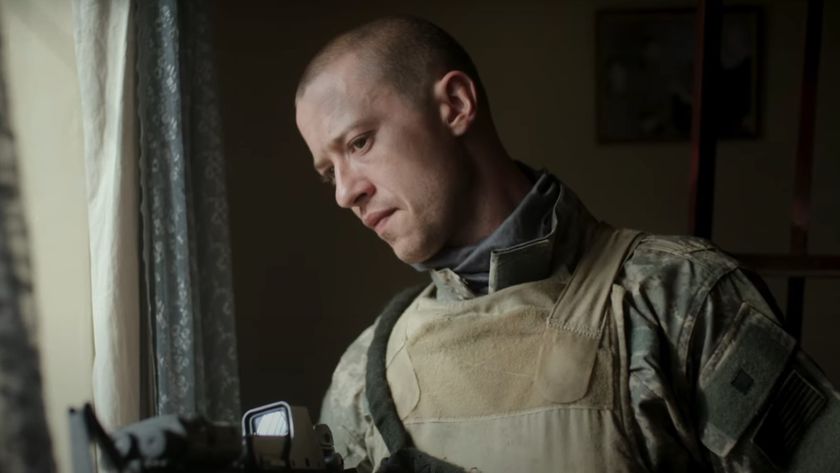
Critics Have Seen Warfare, And They’ve Got Strong Feelings About The ‘Too Messy’ And ‘Too Real’ Depictions Of Combat
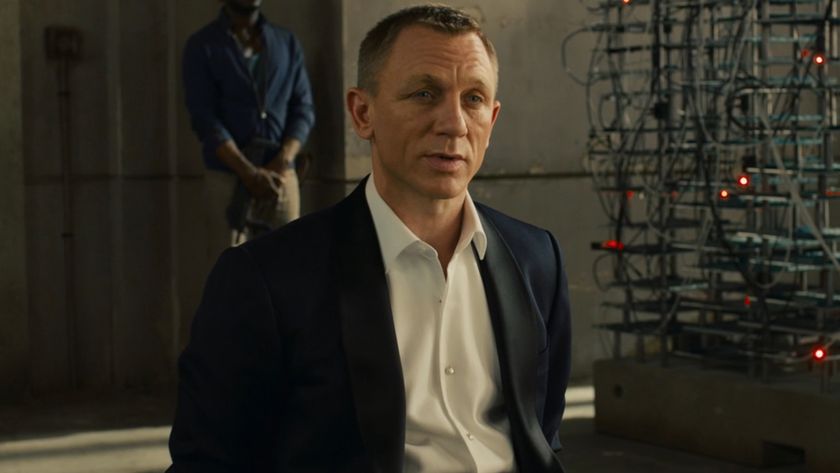
Amidst All The James Bond Rumors, A Major Amazon Exec Is Out, And I Hope This Gets 007 Back On Track





